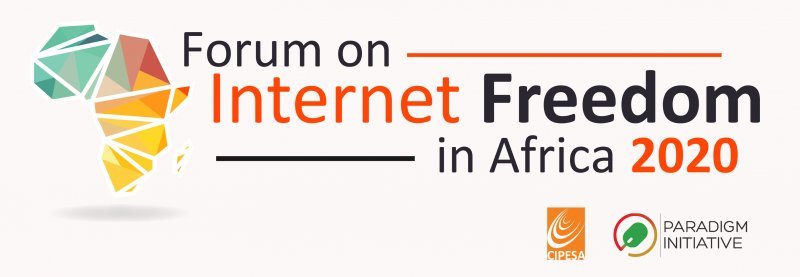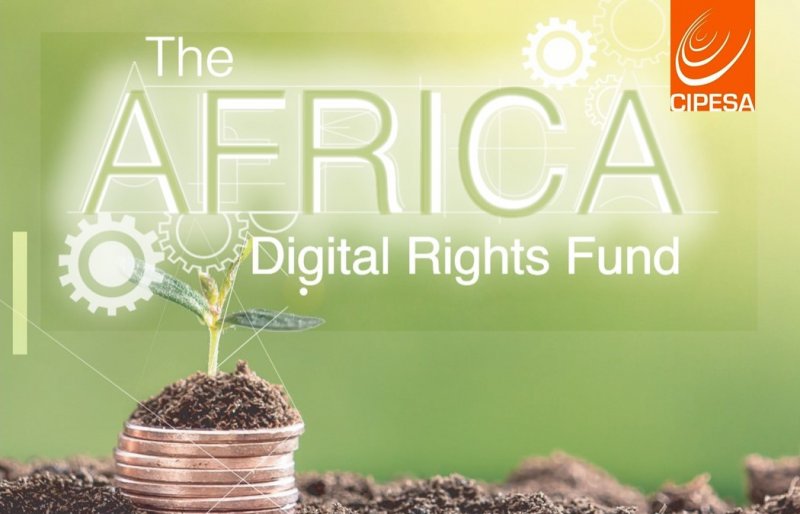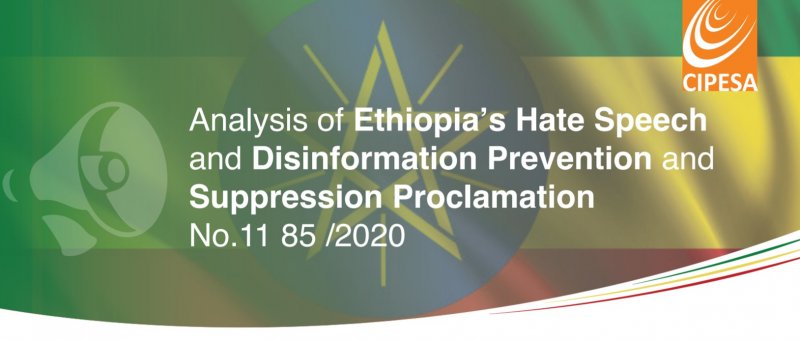By Melissa Zisengwe |
The outbreak of the Covid-19pandemic has seen a number of African civic tech initiatives support efforts to help citizens, governments, businesses and communities respond to the global health crisis that is affecting every part of our lives. Civic tech has enabled government, citizens and companies to track and slow the spread of Covid-19across different African countries.
According to the Civic Tech Innovation Network, there are at least 140 civic tech initiatives in Africa.
Civic Tech During Covid-19 in Africa
Across the continent, civic tech initiatives have been actively using their innovations to respond to the pandemic – showing the potential and shortcomings of technology during a pandemic. Indeed, Covid-19 is an unprecedented opportunity to reimagine how technology can shape society. Although there are many civic tech initiatives stepping up to the fight against Covid-19, this blog post focuses on just eight initiatives. Here is how eight African civic tech initiatives are responding and helping during the Covid-19 crisis:
- Amandla.mobi-South Africa
The independent, community advocacy organisation Amandla.mobi seeks to build a more just and people-powered South Africa and has been campaigning on Covid-19 related issues. With a membership of over 600,000 people, Amandla’s recent Covid-19 related campaigns include: Make schools safe before they re-open, Stop the late payment of social grants, families are struggling enough. Demand Minister of Social Development and Sassa CEO act, Coronavirus, here’s what mobile networks should do. All these campaigns focus on daily issues that South Africans are facing.
The campaigns are run based on Amandla.mobi’s founding principle – turning every mobile phone into a democracy building tool so that no matter where South Africans live; the language they speak or issues they care about, they can take action with others.
2. BudgIT-Nigeria
The Nigerian innovative enterprise focuses on simplifying the national budget and public data, making it accessible to the general public to aid participatory governance. BudgIT in partnership with Civic Hive have been tracking Covid-19 funds and allocations through the CovidFund Tracka portal. It tracks Covid-19 donations given to the federal and state governments of Nigeria ranging from private and public, local and international organizations. According to Budgit the CovidFund Tracka portal enables them to monitor resources and give reports of palliatives being given to citizens. The platform lists the Covid-19 donations and it allows citizens to search through the data sheet by state, donor, name, donation details, donation type and more, currently CovidFund Tracka has tracked down 294 donations by private and public, local and international organizations. It follows up this effort through social media by sharing the news of donations.
Through the CovidFund Tracka platform they also have a built-in Covid-19 dashboard which provides Covid-19 information such as number of tests, confirmed cases, active cases, recovered cases and deaths.
According to BudgIT’s Media & communications lead, Damilola Ogundipe civic tech has to play the important role of advocating for accountability, citizen engagement, and information, monitoring government response to all citizens including persons with disabilities during Covid-19.
3. Code for Africa-Africa (CfA)
Code for Africa, one of the largest, if not the largest civic tech organisation in Africa has been using technology and data to build digital democracies and empower citizens with actionable information.
In response to the pandemic Code for Africa started working on multiple initiatives, including:
- To digitise and publish local Africa-specific data and scientific research to help planners better understand which specific communities, infrastructure and/or services are most vulnerable to Covid-19, and what countermeasures might be most effective;
- To debunk the most harmful misinformation and quackery, that has become a tsunami or ‘infodemic’ on social media and that is blunting public efforts to tackle Covid-19. The partners will do this by fact-checking misleading memes and claims, as part of a wider CfA partnership with Facebook and WhatsApp, while simultaneously amplifying the voices of credible African scientific researchers, and empowering African newsrooms and social media influencers to fight misinformation with facts and compelling storytelling;
- This initiative aims to connect African researchers and experts to change-makers in government, the media and at development, to help improve the appropriateness and relevance of plans or interventions, as well as to bolster evidence-based public discourse.
4. Govchat-South Africa
Govchat, the official citizen engagement platform in South Africa. It enables the government and citizens to connect directly, at no cost.. In response to the Cobid-19 crisis, the initiative has deployed Covid-19 related functionalities to support the government’s efforts. The new features allow citizens to use GovChat on WhatsApp for Covid-19screening, facility searches, and status reports.
Govchat has also been providing information, guidelines, resource tools for businesses, communities, citizens and enhancing public communication and engagement and action. The information and resources focus on how WhatsApp can help people connect with those who matter most.
Govchat Covid-19 pre screening feature, UNATHI GovChat, was born out of a partnership with the Department of Cooperative Governance and Traditional Affairs (CoGTA). UNATHIi is a Covid-19 pre-screening and early warning digital interface.
UNATHI is an accessible ChatBot available over both WhatsApp and FaceBook Messenger and assists both:
- South Africans, in providing Covid-19 testing details and pre screening information, and
- The South African Government, in collating and reporting real-time citizen COVID19- related activity and symptoms.
Govchat says through UNATHIi’s easy natural language-guided questions, citizens are able to anonymously:
- Indicate their location,
- Report Covid-19 symptoms presenting in themselves, family or household members,
- Find their closest public or private testing facility,
- Report their test activity and results, and
- Receive health tips and information.
UNATHI IS accessed through WhatsApp, people just add the number 082 046 8553 to their devices.
GovChat’s CEO Eldrid Jordaan says the platform has 3 million active users monthly.
5. Mzalendo Trust-Kenya
The Kenyan non-partisan entity, Mzalendo, facilitates public participation in Kenya’s Parliamentary processes through information sharing, research, and networking. The suspension of parliamentary proceedings due to Covid-19has seen Mzalendo’s Dokeza platform support continued citizen participation through bill annotating remotely., through the pandemic Dokeza still shares parliamentary proceedings including the Kenya National Commission on Human Rights (Amendment) Bill, 2019, Community Health Services Bill, 2020 and more. These parliament proceedings are essential proceedings that citizens should be aware of so they can participate or respond to new bills or laws.
Mzalendo says many CSOs have had their normal operations affected by the social distancing measures currently being enforced to curb the spread of Covid-19. Through their role of monitoring parliament on Dokeza, Kenyan CSOs are able to stay updated on any proposals by the executive or parliament that in one way or another impact their day to day operations.
In similarity to SEMA Uganda, Mzalendo has also engaged citizens at the grassroots level through its “Bonga-na-Mzalendo!” SMS platform to collect views on issues pertaining to the socio-economic impact of Covid-19.
Through its social media accounts on Facebook, Twitter and Instagram, Mzalendo has also been providing citizens with information, guidelines, resource tools for businesses, communities, citizens, research and advocacy, e.g. on Covid-19 impact, enhancing public communication, engagement, action. For example this illustrated video from a webinar on the Impact of Covid-19 on Governance in Kenya.
6. Pollicy-Uganda
The technology consulting and development firm Pollicy, which aims to improve government service delivery through improved civic engagement and participation, has been organizing online training and provided online support for human rights defenders, non-governmental organisations (NGOs) and civil society organisations (CSOs) on how to harness digital tools/technologies to ensure continuity of their work. Pollicy is also sharing useful blog posts from the civic tech community on misinformation, virtual events, digital security and digital data collection during Covid-19.
7. SEMA-Uganda
SEMA is an initiative which collects citizens’ feedback on public institutions and services, and translates their responses into recommendations for improved service delivery. Following reports of the first cases of Covid-19 in Uganda and subsequent government restrictions to curb its spread, SEMA carried out an online survey to gather citizens’ opinions and needs regarding access to public services during the lockdown. The survey focused on public services such as health, utilities such as water and electricity, security in terms of police, food, rent, mobile money and business and immigration services. The results show that health services were the most needed public service during lockdown.
According to SEMA African civic tech can help during the pandemic by providing a platform where citizens are able to speak up. “During the first two weeks of a lockdown in Uganda following a Covid-19 outbreak, SEMA has conducted an online survey to find out what citizen’s needs are during this time. In this report we address three main topics: which services are most needed, how should the government improve accessibility to those services, and what can citizens do to support the government and their community to overcome the crisis. We close with 6 main recommendations, urging the government and community to listen to each other. Only then can we respond to this crisis effectively, and with care for everyone’s voice,” states SEMA in its survey results.
8. U-report-Africa
U-Report is a UNICEF programme which uses polling for community participation to address issues of concern in sectors including health, education, water and sanitation, and youth unemployment, among others. With active platforms in over 80 countries globally ( 26 in Africa), U-Report has supported surveys on Covid-19 related topics such as Nutrition Covid-19 U-Report Poll, Uganda, would love to hear your experiences on nutrition of infant and young children to support Government during this Covid-19 period; Zimbabwe, Coping with school closures in Zimbabwe during the Covid-19 global pandemic; Senegal Volunteering for the Covid-19 response during the state of emergency (third wave); Covid-19 information and awareness campaign.
Whether it is the challenge of inadequate access to information, transparency or citizen participation, civic tech is playing a crucial role in Africa during this difficult time. Various countries and agencies have set up Covid-19 dashboards including Covid-19 Africa, Covid-19 South Africa Dashboard, Durban Edge in South Africa, Africa CDC Dashboard, Côte d’Ivoire Dashboard, Transparency International Kenya dashboard, Sehatuk Morocco to monitor the development of the corona virus in Africa.
Nonetheless, challenges prevail. Pollicy says its key challenge has been expectations that surround civic tech don’t usually match reality, but also that they lack the manpower to operate some of the technology. BudgIT states that getting the government to be fully transparent and accountable with all received funds and loans has also proven to be a challenge. However, BudgIT continues its work to track Covid-19 donations which are given to the federal and state governments of Nigeria ranging from private and public, local and international organizations.
Although civic tech faces many challenges, especially during the pandemic, it continues to play its part and help the continent respond to Covid-19 by engaging and informing citizens and fostering cooperation between different sectors. Civic Tech in Africa has been on the rise for over a decade however its impact and successes are far less documented making it difficult to understand its impact. It is worth noting that as the civic tech movement continues to grow in Africa, many citizens are still left behind due to many issues such as lack of awareness about civic tech and how to use it to their advantage, access to the technology and internet in Africa is growing but many are still offline. Another issue with civic tech in Africa is lack of government response and incentives, although many citizen reporting and participation platforms have been formed, the government does not always respond to the citizens’ participation and responses.
As more people become part of the online one certainly hopes that African governments do their part in increasing digital literacy across the board, building the necessary digital infrastructure and encouraging the civic tech users and innovators to keep rising up to challenges faced by Africa.
By Melissa Zisengwe is a 2020 CIPESA Fellow. This blog post is part of her research on the use and adoption of civic tech in Africa during the Covid-19 crisis. It was first published on Medium on 20 July, 2020.





